
The book aims to make the vaccination process less scary and allow more children to be vaccinated.

The book aims to make the vaccination process less scary and allow more children to be vaccinated.
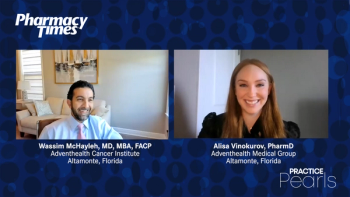
Dr McHayleh provides an overview of HR+/HER2- breast cancer treatment strategies and practices.

Alisa Vinokurov, PharmD, and Wassim McHayleh, MD, MBA, FACP, discuss pharmacists’ evolving role in treatment management for breast cancer.
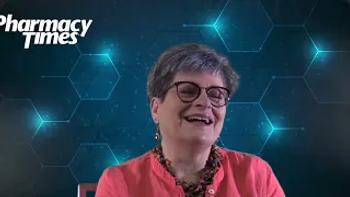
Controlling blood pressure may be the most important type of treatment for vasculitis and lupus patients, said a professor of renal medicine at ASN Kidney Week in Orlando, Florida.
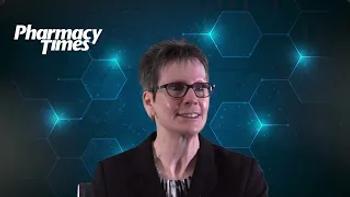
Daprodustat is suggested to improve anemia and quality-of-life in patients with chronic kidney disease.

Healthcare practitioner finds that institutions need to acknowledge advantaged and disadvantaged groups of patients as motivation to overcome systemic barriers.

Pharmacists should get out from behind the glass from time to time and work with chronic kidney disease patients to better understand their medications and lifestyle decisions, said an analyst who spoke at ASN Kidney Week in Orlando, Florida.
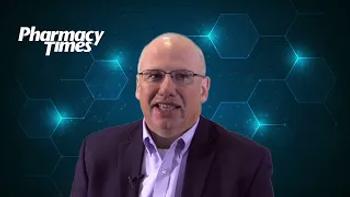
Education, awareness, and more training may help more pharmacists and kidney patients consider home dialysis as an effective treatment option, said an expert on November 4 at ASN Kidney Week in Orlando, Florida.

Researcher suggests that medications for high blood pressure may be useful in treating patients with slow-onset immunoglobulin A nephropathy, a topic he will present on this weekend at ASN Kidney Week in Orlando, Florida.

Dr Vinokurov illustrates the evolving role of pharmacists in HR+/HER2- breast cancer treatment.

Wassim McHayleh, MD, MBA, FACP, and Alisa Vinokurov, PharmD, discuss HR+/HER2- breast cancer.

Carl Schmid, executive director of the HIV+Hepatitis Policy Institute, discusses how the new once every 2-month injectable PrEP has shown potential to increase adherence among populations with the greatest need.

An ASCP 2022 Annual Meeting session presenter provides an update of 6 new therapeutic agents and their appropriate use in an older adult population.
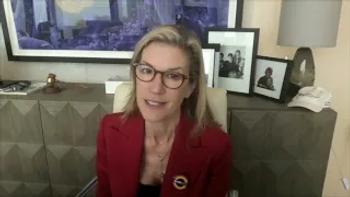
Pharmacy Times is gearing up for Kidney Week (Nov. 3-6) by learning about the pharmacological role of kidney care from the president of the American Society of Nephrology.

Pharmacists can remind parents to have an EpiPen on hand and to carefully review candy after trick-or-treating.

In a panel, pharmacy technicians discuss the future of pharmacy technicians in United States, Portugal, and the United Kingdom.

In a panel, pharmacy technicians across the world discuss the role of automation in United States, Portugal, and the United Kingdom.

Completing a breast cancer-focused continuing education credit and encouraging screenings are 2 ways that pharmacists can get involved during the month of October.
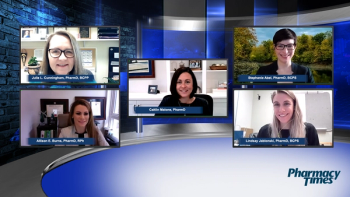
An expert panel led by moderator Dr. Cunningham identify substance use disorder, COVID-19’s role, and opportunities for pharmacists to help patients with resources for recovery.

ASCP 2022 session presenters review the evidence that tipped the scales against the use of aspirin for primary prevention in patients aged 60 years or older.

In a panel, pharmacy technicians across the world discuss what immunizations and point-of-care testing looks like in United States, Portugal, and the United Kingdom.

ASCP 2022 session presenters discuss medications that can cause QTc prolongation, with a particular emphasis on a review of the literature with regards to QTc prolongation and antipsychotics.

ASCP 2022 session presenters discuss strategies and tools that can help busy pharmacists stay up to date on current medical literature, guidelines, and media.

A researcher suggests that the levels of certain gut bacteria can predict the severity of symptoms that someone can experience when infected with COVID-19.
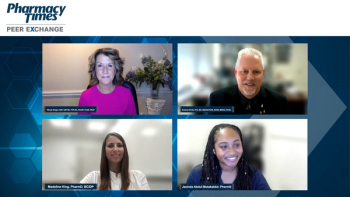
Jacinda Abdul-Mutakabbir, PharmD, discusses the difference between the original SARS-CoV-2 strain and subvariant strains.

In a panel, pharmacy technicians across the world discuss the different continuing educations requirements in United States, Portugal, and the United Kingdom.

An ASCP 2022 session presenter explains some recent updates on vaccination guidance for the older adult population.

As a part of the Women in Pharmacy series, Catherine Duggan, FRPharmS, CEO of International Pharmaceutical Federation (FIP), explains her hopes for the pharmacy profession following pharmacists’ pivotal and expanding roles in the pandemic.

In a panel, pharmacy technicians across the world discuss how the role for pharmacy technicians will continue to grow post-pandemic in United States, Portugal, and the United Kingdom.

The benefits of psychedelic medicine could expand into long-lasting and transformative therapeutics to treat depression better than selective serotonin reuptake inhibitors (SSRIs).